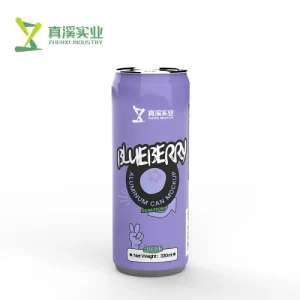Aluminum Cans: Built to Last
Aluminum cans are a staple in the beverage industry, favored for their strength and lightweight nature. Remarkably, these cans can support over 90 pounds of pressure per square inch, which is about three times the pressure in a typical car tire. This resilience is due to the aluminum's ability to undergo extensive forming and bending without breaking.
Manufacturing Process Enhances Strength
The manufacturing process of aluminum cans plays a crucial role in their durability. Starting as a flat sheet, the aluminum is molded into a cup and then stretched into a thin-walled cylinder. This stretching aligns the metal's grains, making the walls nearly as strong as steel. Each can is then topped with a rigid lid that adds structural integrity, allowing it to withstand the rigors of transportation and storage.

Corrosion Resistance Adds to Longevity
Another key feature of aluminum cans is their resistance to corrosion. Aluminum naturally forms a protective oxide layer when exposed to air, which prevents further degradation. This is vital for maintaining the can's integrity, especially when containing acidic beverages like soda. Additionally, modern cans are treated with a food-grade epoxy lining that shields the metal from the contents, ensuring flavor preservation and further enhancing the can's lifespan.
Environmental and Economic Benefits
The durability of aluminum cans translates into substantial environmental and economic benefits. Their ability to be recycled repeatedly without loss of quality reduces the demand for raw materials and energy. In fact, recycling aluminum saves up to 95% of the energy required to produce new aluminum. This efficiency not only conserves resources but also lowers production costs, making aluminum cans an economically sensible choice for manufacturers.
Lifetime Performance
Given their robust construction and resistance to wear and tear, aluminum cans can last indefinitely if not physically damaged. They are designed to be 100% recyclable and can be melted down and reshaped into new cans repeatedly. This cycle can occur within as little as 60 days, showcasing the can's ability to be part of a sustainable system that minimizes waste and maximizes resource use.
In today's market, the durability of aluminum cans is unmatched. They provide a reliable and sustainable packaging solution that meets the needs of both consumers and producers. As we continue to prioritize sustainability, the role of aluminum cans only becomes more vital in our global effort to reduce environmental impact.